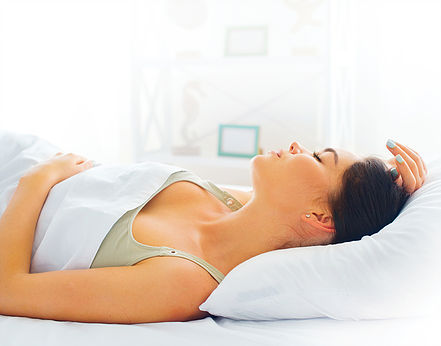
How Depression Affects Sleep
A major symptom of clinical depression is insomnia. Not all insomnia is caused by depression, of course, but the repetitive thoughts, low mood, and general inactivity caused by a depression disorder can all play havoc with sleep cycles. Insomnia can have many forms, including:
-
Lack of ability to fall asleep
-
Lack of ability to stay asleep
-
Frequent waking or “tossing and turning” during the night
-
Sleeping too little
How Sleep Affects Depression
In a disturbing catch-22, not only can depression make it difficult to sleep, but lack of sleep can actually trigger depression. Many of the body’s restorative chemicals and hormones are only released during sleep, so a lack of sleep can amount to a backup of “housekeeping” tasks in the body and brain. If you find yourself stuck in a cycle of not sleeping because you’re depressed, and then feeling worse because you’re underslept, you don’t have to feel trapped. Talk to your doctor: insomnia and depression are both very treatable.
How Your Mattress Affects Sleep
What if you don’t have clinical depression–but you notice that your sleep isn’t as great as you’d like it to be, and you’re spending more and more time feeling irritable and down? Well, it’s still always a good idea to get checked out by a doctor. If, however, your doctor has given you the all-clear, the problem might lie with your mattress. If your mattress is more than ten years old or if you routinely wake up stiff, sore, or uncomfortable, then it’s time for a new one. Your outlook on life and ability to do the activities that bring you joy are too precious to risk losing over something as simple as purchasing a great new mattress.
With proper sleep hygiene, the strategies prescribed by your doctor, and a mattress designed to support you and help you get the sleep you need, you don’t need to spend another day feeling down.
Sources:
Not Enough Sleep Linked To Depression And Anxiety – www.psychcentral.com
Sleep Deprivation And Depression – www.webmd.com
